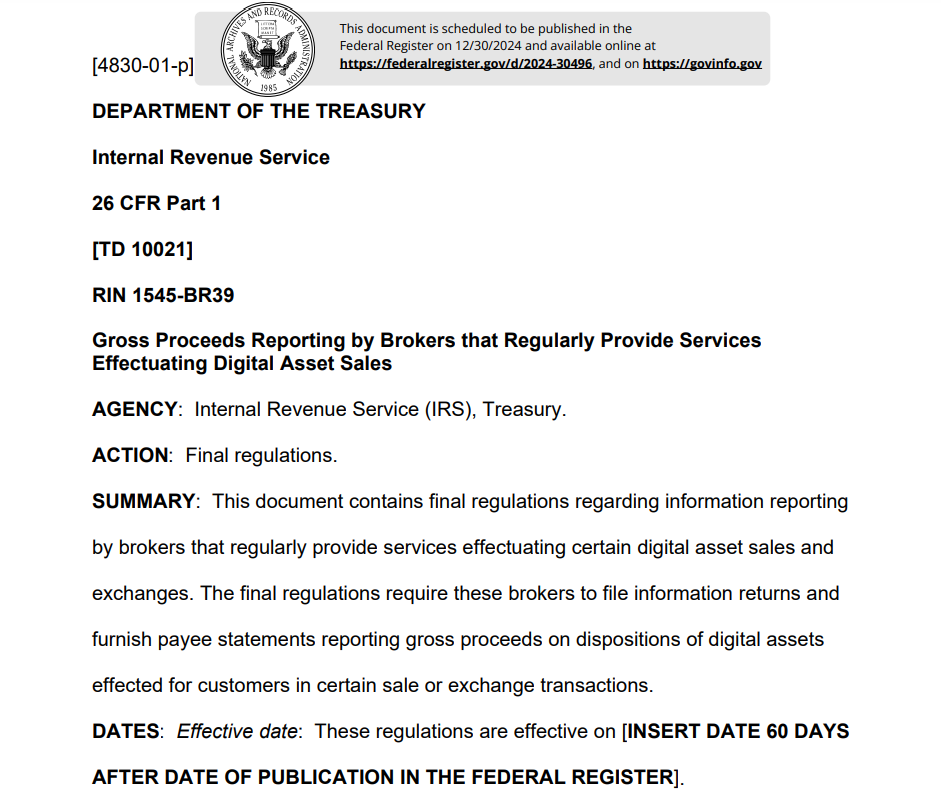Globally, the priority of cryptocurrency regulations is focusing on taxation issues. Before taking office, Trump witnessed the U.S. Internal Revenue Service finalize a controversial rule. SEC Chair Gensler faced backlash for appointing senior officials opposed to cryptocurrency to secure their positions, enhancing their influence. This article examines the implications of these new rules.
DeFi Cryptocurrency Taxation
The U.S. Internal Revenue Service classifies DeFi platforms alongside traditional brokers. This classification imposes certain responsibilities on DeFi protocols, which will now be required to store information about user transactions and report it similarly to market brokers. Users will receive Form 1099, and their profits will be subject to taxation.

Aviva Aron-Dine, Deputy Assistant Secretary for Tax Policy, stated, “These regulations will ensure that all taxpayers operate under the same rules and have access to the information needed to report their taxes accurately. Aligning cryptocurrency tax reporting requirements with those for other assets will simplify and reduce costs for compliant taxpayers while helping to close the tax gap.”
Efforts for Centralization
Decentralized finance (DeFi) also allows for user privacy. For instance, while an external user can observe a transaction amount from wallet X, they do not know the wallet owner’s identity. However, this regulation mandates that DeFi protocols must store user information such as names and addresses when interacting through a website interface.
But what about users interacting directly with smart contracts or using fake information? The latter raises the need for KYC (Know Your Customer) requirements for DeFi platforms, although no such rule currently exists. The rule is expected to come into effect on or after January 1, 2027. The KYC obligation was originally proposed by SBF, who later defrauded U.S. investors of billions.
Bill Hughes, Consensys’ senior consultant and global regulatory director, claimed this “absurd” rule will face challenges in court and Congress, suggesting it will likely be overturned in the coming months, serving as one of the good news headlines on that day.
Disclaimer: The information contained in this article does not constitute investment advice. Investors should be aware that cryptocurrencies carry high volatility and therefore risk, and should conduct their own research.










